Despite its stunning cinematography, gripping storyline, and impressive ensemble cast featuring eminent actors like Viola Davis and John Boyega, The Woman King is a historical epic that has been embroiled in controversy.
The film’s central focus is on the Agojie, a group of female warriors in 1823, and it also delves into the socio-political landscape of the Kingdom of Dahomey in the early 19th century, including the slave trade.
In the movie, General Nanisca is the leader of the Agojie under the reign of King Ghezo. Throughout the movie, she struggles with reconciling the benefits of the indentured industry, which provides a lucrative way of life, with its considerable moral cost.
The Woman King doesn’t attempt to hide or erase the origins of Dahomey’s wealth or the utilization of its key resources, but the manner in which it’s portrayed has been intensely scrutinized. Actor Viola Davis herself has previously acknowledged the historical inaccuracy in the film and has mentioned that the blending of factual and fictional elements was done with the intent of creating a more engaging cinematic experience.
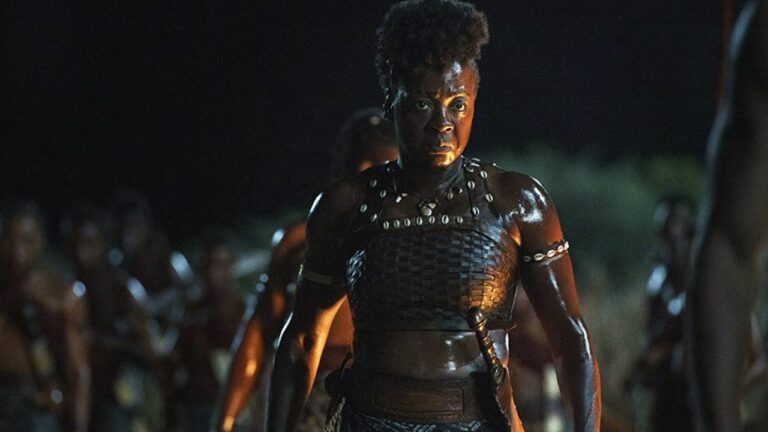
However, some viewers are dissatisfied with the portrayal of the involuntary relocation of Nanisca’s people, feeling that the depiction is overly sanitized.
A significant portion of the controversy surrounding The Woman King centers on the portrayal of King Ghezo, who was responsible for selling other Africans in port towns while they were under Oyo Empire’s tributary. While the film does acknowledge Dahomey’s primary business, Ghezo is depicted in a mostly positive light, viewed as a compassionate ruler who is trying his best to care for his people.
As he is at the mercy of the Oyo Empire, he is presented as a shrewd individual who does what he must to keep his kingdom afloat, rather than someone intentionally exploiting resources for profit.
The Woman King’s storyline has been modified to some extent, but the film includes several moments in which Nanisca attempts to persuade Ghezo to refrain from generating wealth through the trade of enslaved people.

This is especially true after violence breaks out between her closest companions, Lieutenant Amenza, Lieutenant Izogie, and new recruit Nawi, and the Oyo in one of the port towns. While these instances directly address the situation, they occasionally struggle to effectively criticize it. The movie doesn’t glorify Ghezo’s actions, but it could have done more to denounce them.
The Woman King faced significant backlash due to various issues, including two white women telling the stories of Black women, and the portrayal of King Ghezo auctioning off his own people to the Oyo and visiting Europeans.
This controversy led to call for boycott. Despite receiving a high Rotten Tomatoes score, some critics found the film offensive to Black people due to its depiction of certain aspects of the slave trade.
However, some fans saw The Woman King as a tale of female empowerment set against the backdrop of a turbulent period in the history of the Kingdom of Dahomey. While attempting to provide a nuanced view of the Agojie from their perspective, changes were made to the portrayal of King Ghezo and how he governed.
Given that much of the available information about this period is from the colonizer’s point of view, it was challenging to approach these topics with the required level of sensitivity. The primary focus of The Woman King was to highlight the crucial social position held by the Agojie in Dahomean society while simultaneously acknowledging the cultural crossroads in which Dahomey found itself.
But that does not change the fact that the film comes across as being steeped in colonial hangover, as it only does the bare minimum required to criticize Ghezo’s actions. As a film which claims to tell the story of Black people and the story of their historical oppression, it does little to actually give them a voice.
Lack of information and caricatural depictions of women empowerment cannot change that the film is flawed in its ideology and is actually a story that glorifies the White Man’s burden masquerading as a film against racial discrimination. The controversy surrounding the film is extremely valid.
About The Woman King
The Woman King is an American historical epic, directed by Gina Prince Bythewood, about the Agojie, a 19th Century all-woman warrior unit protecting Dahomey.
The film is set in the 19th century in the African kingdom of Dahomey and will follow the Agojie’s general Nanisca, who trains a new generation of warriors to defeat the enemies of their nation and those who seek to destroy them.
The film stars Viola Davis, Thuso Mbedu, Lashana Lynch, Seila Atim, Hero Fiennes Tiffin, John Boyega, Makgotso M, and Adrienne Warren. The film released on 16 September 2022.
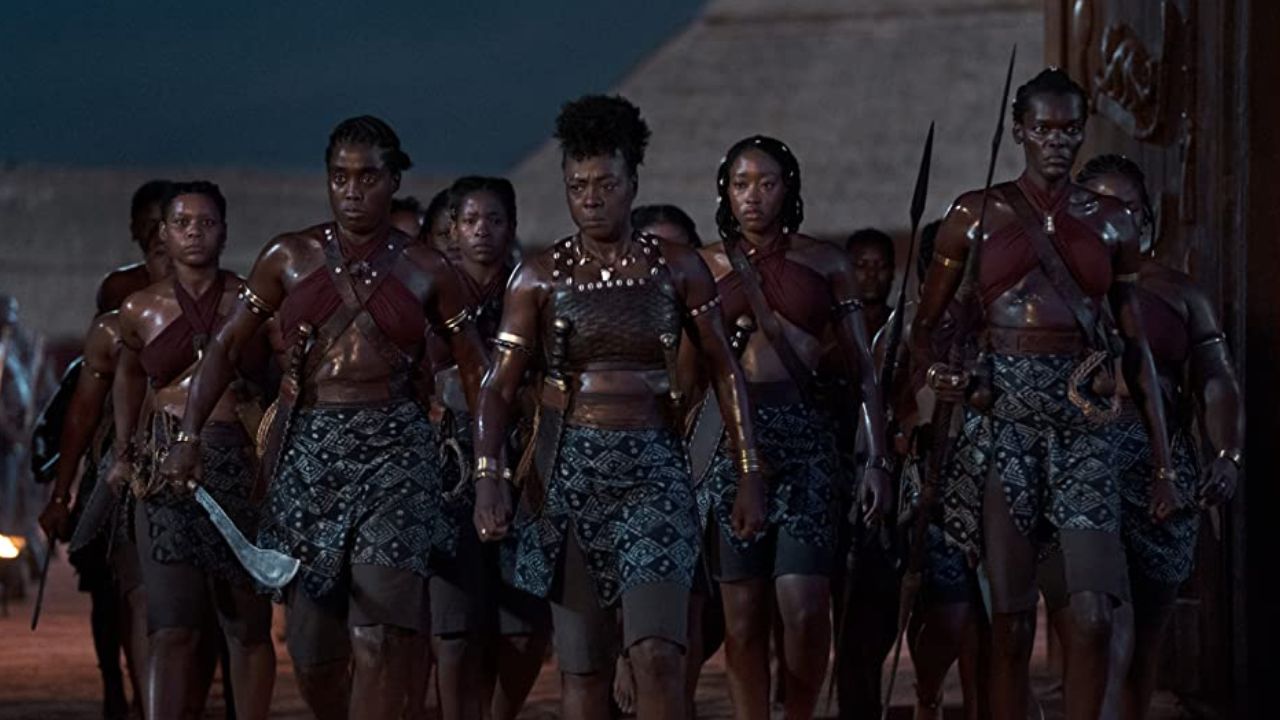
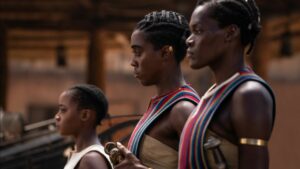


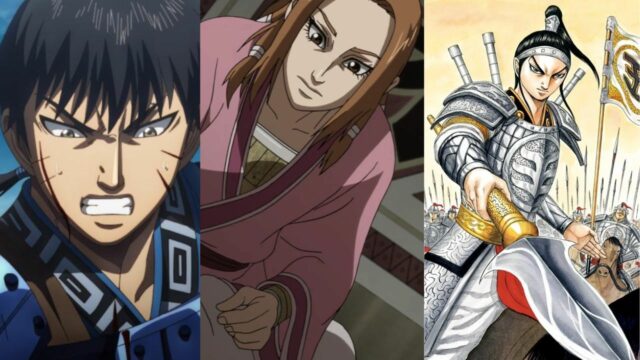
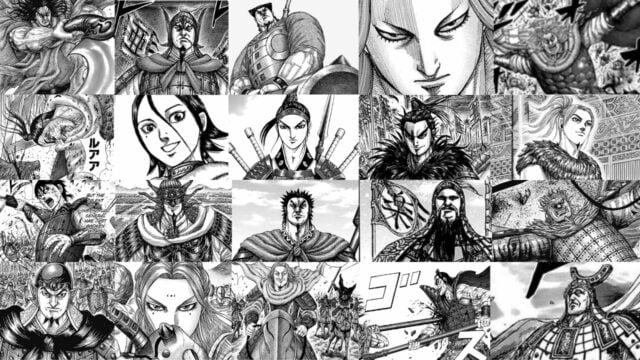
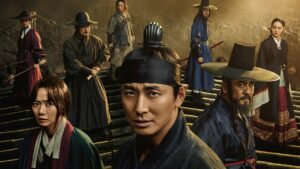
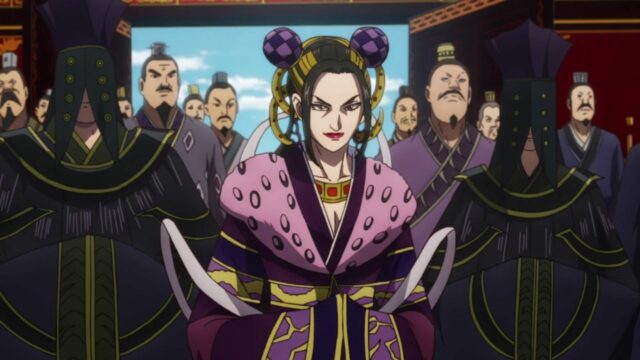

No Comments on A Breakdown of the Controversy Surrounding the Woman King